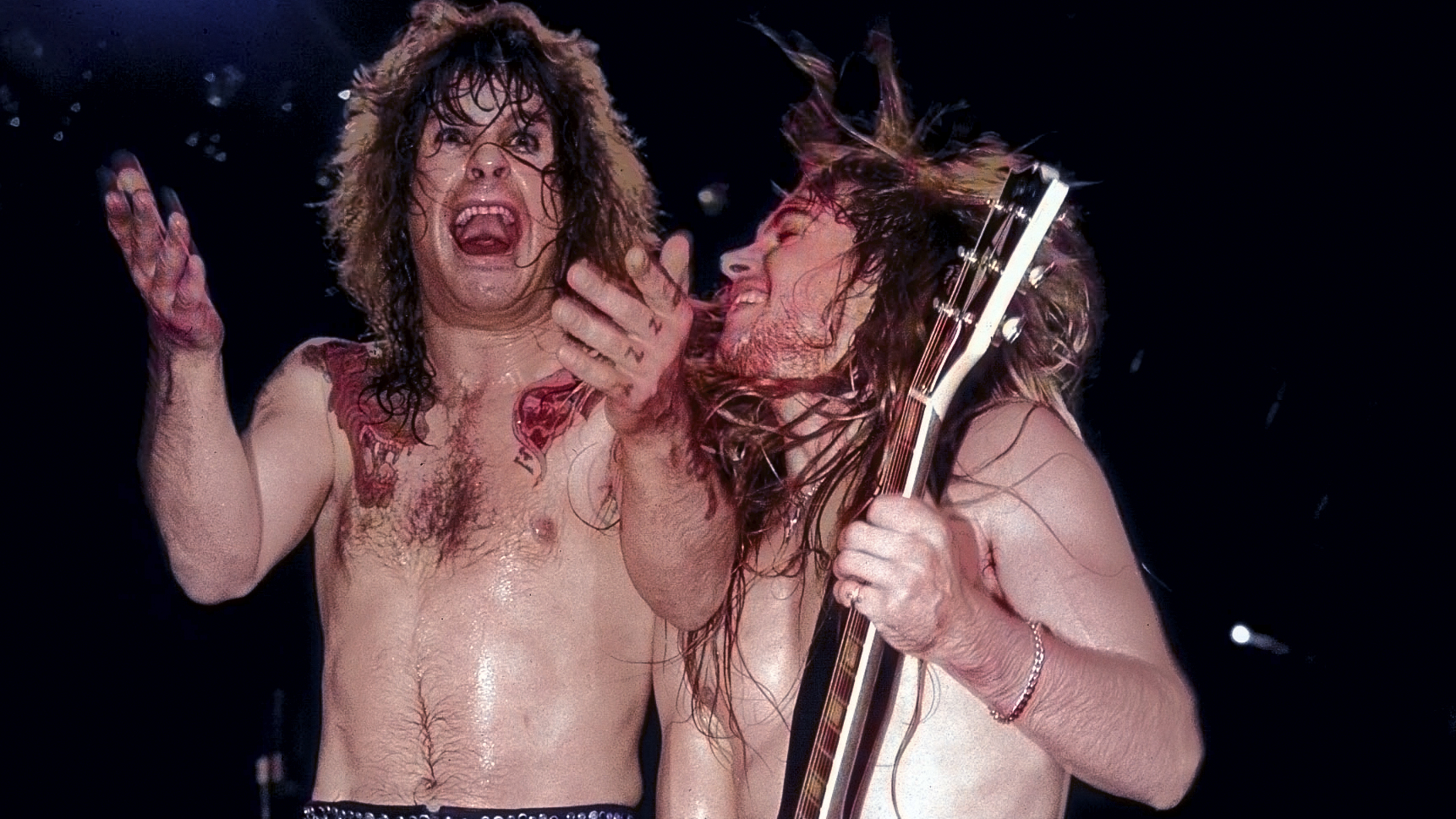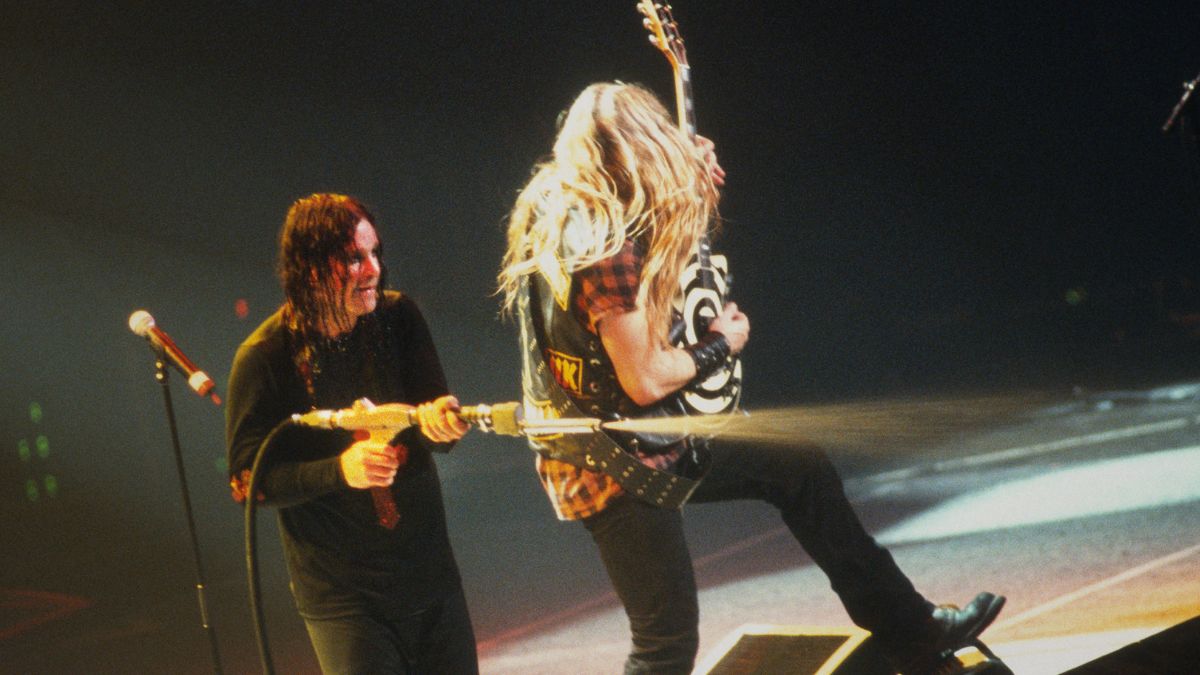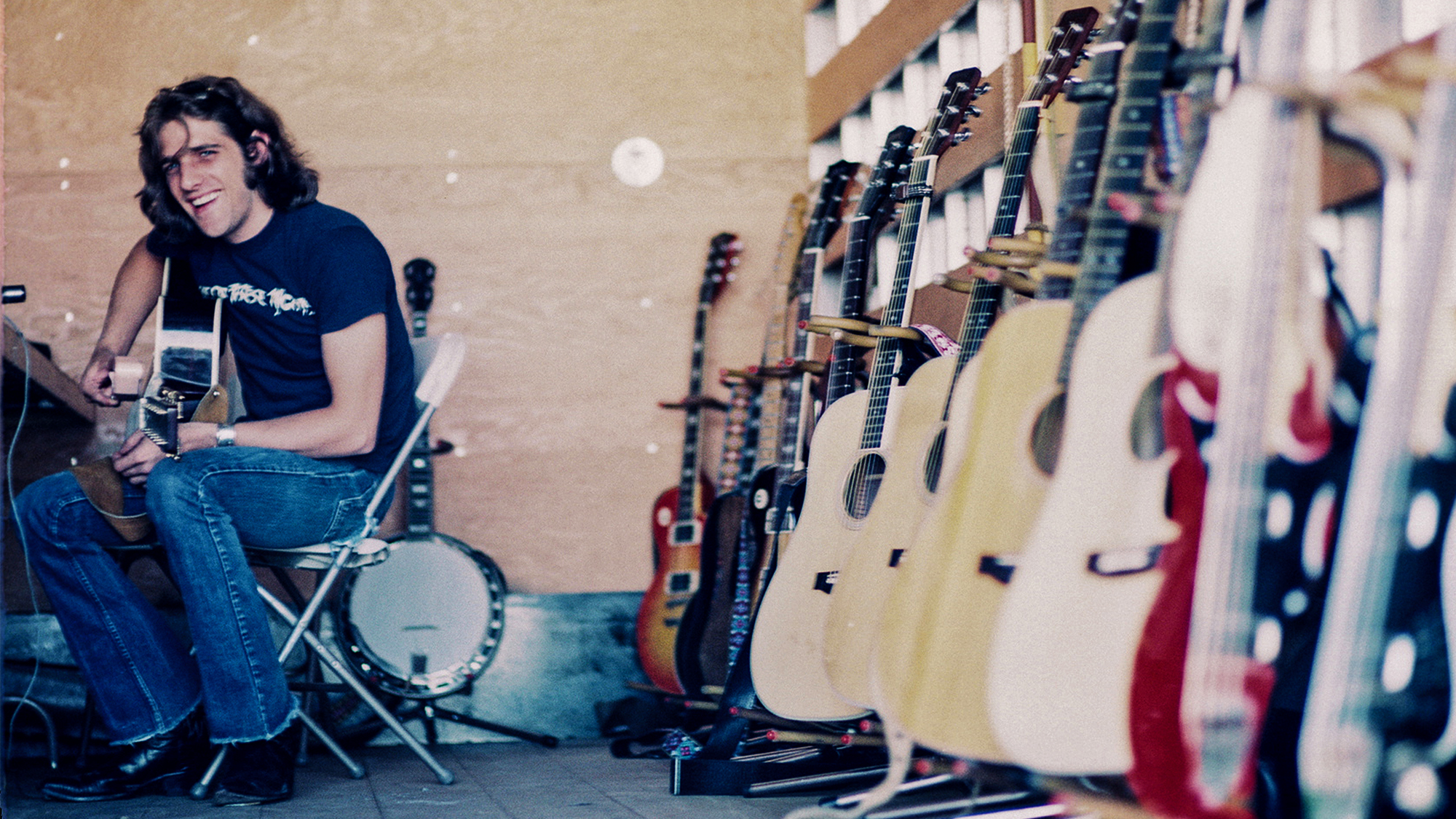“He was texting me, ‘Let’s do another record. I really loved it when you were going through your Allman Brothers and Lynyrd Skynyrd phase.’” Zakk Wylde says Ozzy was plotting a return to his ‘No More Tears’ style at the time of his death
The album marked the height of Ozzy's solo years, when Wylde was both his guitarist and co-writer

All the latest guitar news, interviews, lessons, reviews, deals and more, direct to your inbox!
You are now subscribed
Your newsletter sign-up was successful
Zakk Wylde says Ozzy Osbourne had plans for a new studio album before his death, and had approached him about returning to the sound of their earliest records together.
Although Wylde had several stints away from Ozzy since he replaced Jake E. Lee in 1987, he wrote for and performed on more albums with the singer than any other guitarist. His five studio albums with Ozzy eclipse the contributions of Lee and Randy Rhoads (two each), Gus G (one) and Steve Vai (one).
In the years following his exodus from the band, he returned for Ozzy's last album, Patient Number 9, which was co-written by producer Andrew Watt.
Speaking to NJ.com, Wylde says Ozzy’s vision for what would have been a 14th studio album would go back to the sound they created for 1991's No More Tears.
“He was texting me, ‘Zakk, let’s do another record, because I really loved it when you were going through your Allman Brothers, [Lynyrd] Skynyrd phase when we did No More Tears. It’s heavy but it’s more melodic, it’s not pummeling heavy,’” Wylde says.
The guitarist, who had hoped Ozzy would continue gigging after his curtain closer at Back to the Beginning, was understandably into the idea. Of course, the album never came to be, but Ozzy’s comments are tinged with a kind of ironic humor as the band had struggled to find a producer for the record. The sound of their demos failed to convince a list of producers, including Rick Rubin, who by then had worked with Slayer, Danzig and the Cult.
“I don’t worry about who’s flying the plane — I just enjoy the ride,” Wylde told Classic Rock in 2022. “I was sent to Rick’s house to get him onboard and played him basically the whole demo.
All the latest guitar news, interviews, lessons, reviews, deals and more, direct to your inbox!
“He says, ‘Zakk, this is like a horrendous Mötley Crüe record. What we really need is some of that Sabbath Bloody Sabbath riff. We just need a whole record of that.’”
In the end, Duane Baron and John Purdell stepped up to the plate and challenged the band to make each song radio-friendly, with Ozzy admitting to CR that he had “a lot to prove.”

That approach certainly worked on "Mama, I'm Coming Home," one of its standout hits, and a track that has generated massive streaming figures since Ozzy's passing. Motörhead bass guitarist Lemmy Kilmister has a writing credit on the track, as well as on “Hellraiser.”
The album's superlative electric guitar–driven title track also helped it shift over eight million copies worldwide. Wylde explained how the tune came about.
“I had a slide with me, and I was thinking about all those bands like Lynyrd Skynyrd and Molly Hatchet that I liked, which was what inspired the slide lines that I started playing — almost like a 'Freebird' feel,” he says.
Wylde said he expected he and Ozzy would have another chance to build on what they had created in 1991. While performing at Back to the Beginning, he had no thoughts that the end was near.
“I wasn’t thinking when we were doing the show that this was the last time I’m going to be doing ‘Mama, I’m Coming Home’ with the boss or this is the last time I’m going to play ‘Crazy Train,’” Wylde says.
But Ozzy, who had pondered death in his final months, was closer to making his exit than anyone knew.
“We did the show, he ended up finishing his book [Last Rites], they did the documentary, and then he was like, ‘All right, I’m out of here,’” Wylde concludes. “He finished everything he had to do, and then he was like, ‘All right, I’m done.’”
In related stories, Wylde has looked back on his Ozzy audition and why he beat others to the gig, as well as how his infamous bull's-eye guitar design was the result of a very happy accident.
A freelance writer with a penchant for music that gets weird, Phil is a regular contributor to Prog, Guitar World, and Total Guitar magazines and is especially keen on shining a light on unknown artists. Outside of the journalism realm, you can find him writing angular riffs in progressive metal band, Prognosis, in which he slings an 8-string Strandberg Boden Original, churning that low string through a variety of tunings. He's also a published author and is currently penning his debut novel which chucks fantasy, mythology and humanity into a great big melting pot.

